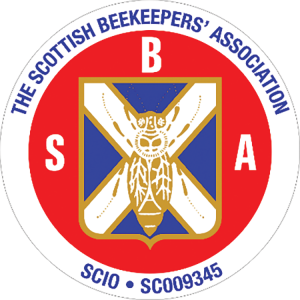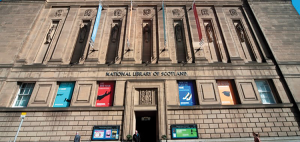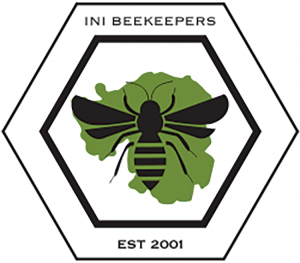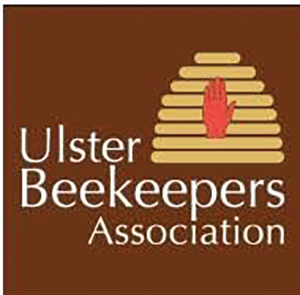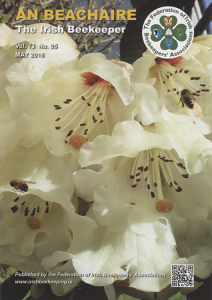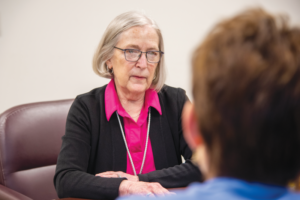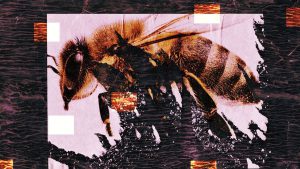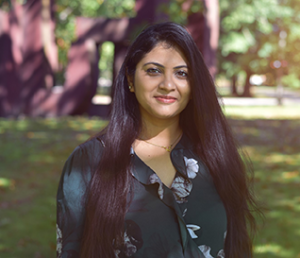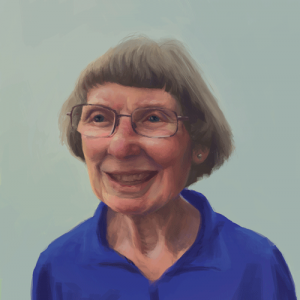
Ann Harman
Get it touch
ahworkerb@aol.com
By: Ann Harman
It’s the middle of Summer now at our cottage in the village in Northamptonshire. Remember we were there in June. Since the bees have plenty of food and a water source it would be a good time to visit beekeepers in other areas. The vacation trip will begin by driving into Scotland then a ferry trip over to Belfast in Northern Ireland, then down south into the Republic of Ireland, finishing with taking a ferry over to Wales, then finally back to the cottage. Plans are to visit some local association meetings and perhaps some conferences.
The Scottish Beekeepers Association, SBA, was founded in 1912 and today represents 1500 beekeepers. However there are 40 local beekeeping associations in Scotland, all affiliated with SBA. Membership dues in SBA have seven different categories, including for-profit and for-non-profit organizations. A discount is given for a new member, and a reduced fee for Junior membership. Many of the local associations offer beginning beekeeping classes.
Members automatically qualify for an Insurance and Compensation Plan. The first 10 hives of a full member are covered free against loss from fire, theft, vandalism and AFB/EFB diseases if the colonies are located in Scotland. However, if the beekeeper makes repeated requests for compensation without taking action, they may be excluded from compensation.
The Scottish Beekeeper is the monthly magazine distributed to all the members. Articles are written by SBA members but also come from other sources. SBA announces workshops that will be given. There will be one in August on Honey Processing. The SVA also has a shop. You can buy shirts and jackets with the SBA logo and also a patch of the logo to put on other articles of clothing. You can select a book from a nice collection for sale. You can also purchase the Study Notes for the BBKA Exams. The examination system is identical to the BBKA program. Information on examinations, the deadlines for application to take exams and workshops can be found on the SBA website.
The SBA has access to a large private library of beekeeping books and periodicals that are available to fully paid-up members. Although this library, the Moir Library established in 1912, is kept at the Fountainbridge Library, members do not have to travel there since the library has various means of distribution. The Moir Library Rare Books Collection is kept at the National Library of Scotland. Here you will find beekeeping books published before 1801, along with a few published a little later.
Honey Shows are an important part of beekeeping here in Scotland. The first big show of the year is the Royal Highland and Agricultural Society Show from June 21 to 24. The Honey Show part is in association with the Scottish Beekeepers Association. There are 50 open classes; the 51st class is only for a display done by a local association. The list of classes is impressive: honey, beeswax, mead and one for a honey cocktail (alcoholic or not), displays, gifts, labels and crafts. Classes for Juniors and one for schools are offered. The classes for honey cookery are interesting. Recipes are given for each type of food. You must use the stated recipe to enter the listed class. Quite a few special awards are given at this show. The Honey Marquee has educational displays as well as honey tastings. The honey cocktails are not included in the tastings.
At the end of Summer the Dundee Flower and Food Festival is held, August 31-September 2. This year is its 30th anniversary. This festival features horticulture and food with a craft fair, cooking demonstrations, and many competitions. The Honey and Beekeepers Section is divided into two competitions. The Honey Section uses the Rules of the East of Scotland Beekeepers. There are 14 classes for honey and beeswax plus five Novice classes. In general a novice is one who has not won a ribbon in a major show. The Beekeepers Section is the Open Scottish National Honey Show. Classes include honey, beeswax, photography, displays, products, mead and cookery (using the recipes given). And, of course, classes are listed for Junior and Novice.
Now it is time to take a ferry across to Belfast, in Northern Ireland. One association is the Northern Ireland Beekeepers Association (INIB) established in 2001. The newsletter has a number of articles and will be giving the date of the 15th Annual Conference and Honey Show that will be held in October. Full membership in INIB gives its members automatic membership in the British Beekeepers Association (BBKA). Members will receive monthly copies of BBKA News and six e-newsletters.
The Mayo Beekeepers Association is a local association that focuses on beekeeping in the west of Ireland. Meetings are held each month and feature lectures, demonstrations and a library. A beginning beekeepers course is offered. The Ulster Beekeepers Association is quite active with programs and beekeeping courses throughout the northern area, as well as a honey show.
In the visit to Northern Ireland and through the Republic of Ireland the Federation of Irish Beekeepers Association. FIBKA, is active. The Federation has a number of affiliated local member associations. Each of these associations has its own programs of events, lectures and demonstrations. Many of them give beginning beekeeper courses. FIBKA has a monthly magazine, An Beachaire, with articles relevant to Irish beekeeping. An annual Summer Course has been held at Gormanston since 1961. This year it will be in August, the 12th to 17th.
In addition to the course, with programs covering from beginner to advanced, there will be workshops, demonstrations, examinations and the National Honey Show. The practical workshops, on a number of topics, will include ones for encaustic art and cooking with honey. The course is internationally known, with participants coming from around the world.
Ireland’s beekeepers are enthusiastic about beekeeping. Several other associations are present throughout. The newest one, Irish Beekeepers’ Association CLG was formed in 2017. This association accepts individual members and does not have affiliated associations. At present, because of its recent organization it is still small in membership.
Another small association is called The Native Irish Honey Bee Society (NIHBS). Its members promote the native Irish honey bee, Apis mellifera mellifera, a dark bee. A focus of this association is to support research, especially in universities, on specific genetic markers found in this bee. Varroa resistance, or tolerance, is also a part of the research. One other small association is the Irish Buckfast Breeders Association (IBBA) that promotes keeping the Buckfast bee.
After being busy with beekeepers and beekeeping associations in Ireland it’s time to get on the ferry for a short trip.
Now here we are in Wales. The Welsh Beekeeping Association (WBKA) was established in 1943. Today there are 19 local associations affiliated with WBKA. Although individual membership is possible, that membership is primarily for organizations and businesses. You indirectly become a member of WBKA by joining your local association. WBKA has 1700 indirect members. The Welsh Beekeeper is the organization’s quarterly publication.
Welsh beekeepers are quite busy with events throughout the year. A special one, to celebrate the 75th year of WBKA in 2018, will be a Convention from July 13 – July 15th with lectures, workshops and some social events. Saturday evening will be the Gala Dinner. The annual WBKA Convention was in March on Saturday the 24th. The Welsh National Honey Show is held at the main agricultural show, the Royal Welsh Show, from 23rd to 26th July. In the honey show 75 classes are scheduled for honey, honey products, wax and mead. Some classes are especially for Junior beekeepers. In addition to this national show, there will be the Conway Honey Fair on September 15. You will find beekeepers taking part in two other agricultural events. The Spring Festival from May 19-29 is called a celebration of small holdings and rural life. Then, in anticipation of Christmas, the Winter Fair, one of the several yearly agricultural shows, will be November 25-26. Honey and other hive products would certainly sell very well at that time of year.
Now it is time to end the vacation trip. Visiting the beekeepers, attending a number of local meetings plus some special events shows that the beekeepers in this part of the world are enjoying their honey bees and taking good care of them.







